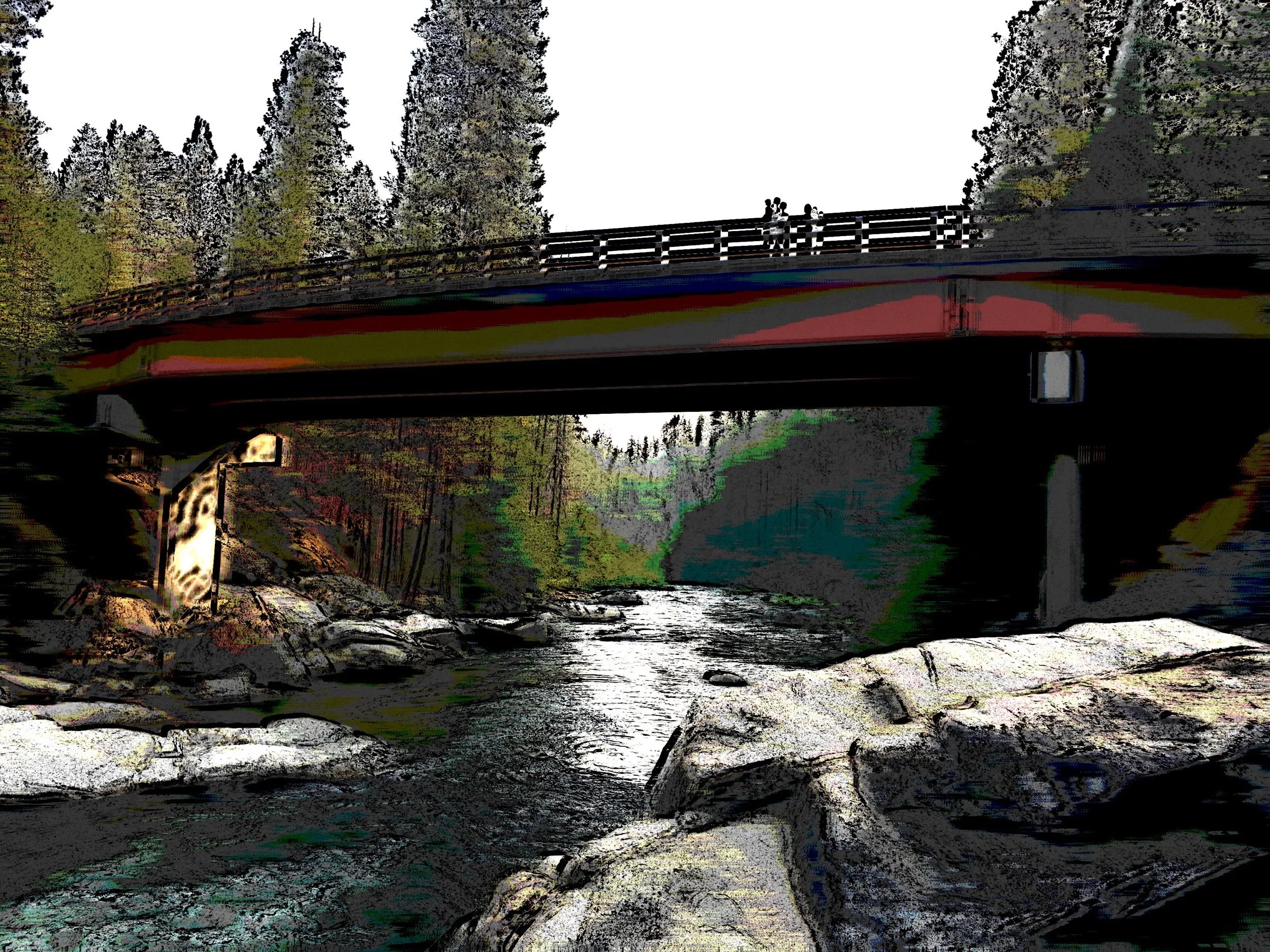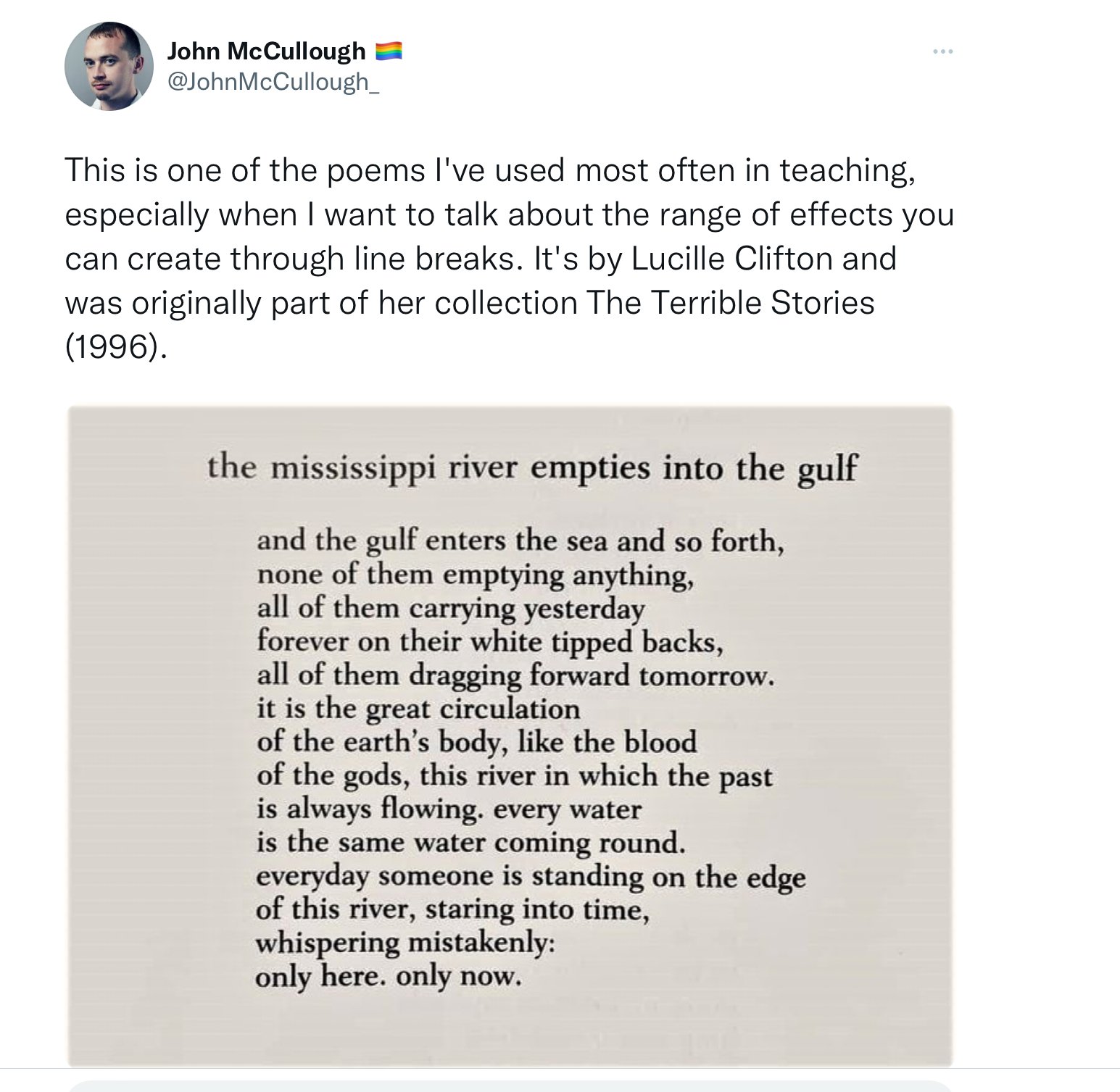For years, I struggled most with line breaks. I know I have improved now that I second guess as much with other parts of the poem (or regressed in other skills, hard to say). So much of progress seems to be retracing steps and back pedaling assumptions.
Thankfully, so many writers share their insights and poems (their own or of others) for me to learn from.
Something that stood out for me was how the interplay of the last word of the lines—“yesterday” followed by “backs” and then “tomorrow,” the logical connection of “circulation” and “blood,” but the contrast between “round” and “edge” and ending on “now” after “mistakenly.”
Those ending words themselves are a story (carried along on the lines of course but could themselves create meaning. For the first prompt, write a poem from the last word from each line and of the title but in reverse order or in a different sequence from the poem: “now,” “mistakenly,” “time,” “edge,” “round,” “water,” “past,” “blood,” “circulation,” “tomorrow,” “backs,” “yesterday,” “anything,” “forth,” and “gulf.”
What I also loved about the poem (ok, one of many things) is the motion. I felt the rocking back and forth in that initial “so forth,” the forward momentum and then that abrupt stop at “edge” before falling into the next line and finally ending on the swaying “only here. only now.”
Of course, John McCullough explains this so much better than I could:
For the next writing prompt, take a poem that just isn’t working for you and break the lines so that you have a momentum that pauses and then rushes forward. If possible, try to revise the title so that it continues into the first line.
Choose a poem that’s content fits the movement; obviously, time, oceans and rivers all work well. Let the form reflect the metaphor: time as a road with the travelers moving atop it, or the river rushing past and splashing the stones submerged in it. What other themes would mesh equally well with the movement: birthing, breathing, falling into a kiss, a falling out of a relationship, stalking, dancing.
For the next prompt, use the line “every day someone is standing on the edge” as a ghostline. Remember to acknowledge the poet with “After Lucille Clifton” for this poem.



